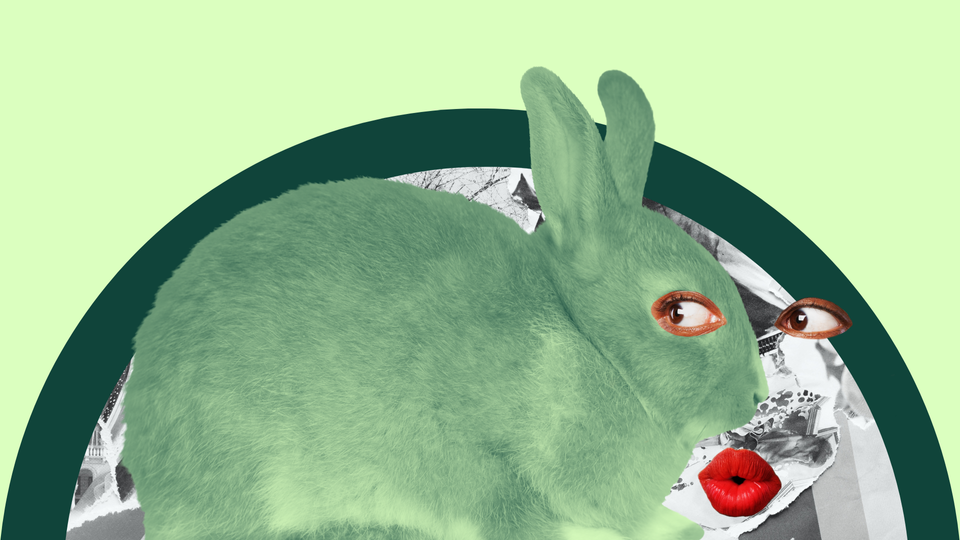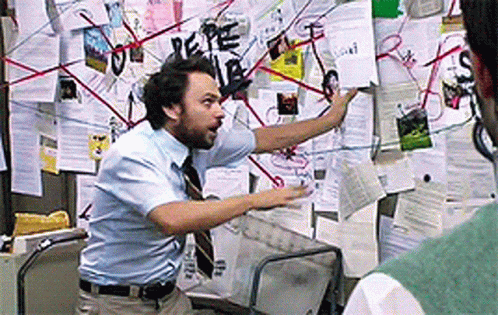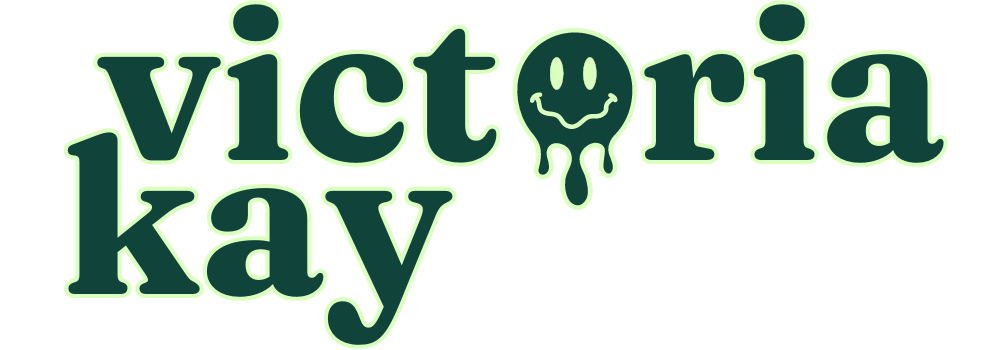The Thinks I've Been Thinking.

I recently made a new friend named Meaghan who has consistently blown my mind since we started talking. I love how her brain works, and she’s been sharing articles and quotes she’s collected over the years that make me feel like someone finally gets me, know what I mean?
She shared some quotes from an old Paul Jarvis newsletter, which isn’t available online anymore. And I’m stoked that she did.
When our thoughts are monetized, it becomes a chore to think. Is this think profitable? If it’s not, let’s quickly think a profitable think!…
When we spend our days trying to only think smart and profitable thinks, any other thinks feel somehow less than or beneath us. If we think thinks that can’t be published, or taught, or used in some expert keynote at a classy luncheon full of think-leaders, then how valid are they?
So it’s easy to assume non-thinky thinks (ordinary thinks) are somehow invalid or a waste of our thinking power.
This may not have been what Paul was pointing to specifically, but it’s inspired me to share some Thinks-in-Progress. These were each initially going to be their own standalone newsletter, but I’m trying to build the muscles of (1) learning in public, and (2) sharing the process.
In the spirit of celebrating thinks, even when they aren’t fully fleshed out Big Important Thinks, here are the thinks I’ve been thinking lately:
The path is a disruption.
I went on a “walking meditation” last week for the first time in a while. This is a normal walk, but with an audio track guiding you to notice the way the ground feels under your feet, or notice the nature around you, that kind of thing. (I use InsightTimer or Spotify for these.)
One of the things I noticed was an old oak tree in someone’s front yard. I took a second to admire it, and then immediately tripped; the tree’s roots have lifted up part of the road, and it caught the toe of my shoe.
My first reaction was to be annoyed. The whole point of the road is so we don’t do things like trip over unexpected obstacles. Keep your roots to yourself, ya ol’ tree-bag!
But trying to be ““mindful”” and ““connected to nature””, I sat with that reaction for a second. What part of this is the tree’s fault? She was probably here before the road was. I’m not entitled to tell the tree how or where to grow.
The road disrupted the tree, not the other way around.
And what a timely metaphor!
This has been a central theme in what I’ve been thinking and writing about — how we need to be creating our own paths forward. But this was helpful in solidifying why that’s important.
Roads are built because that’s where someone believes a path should be. They believe that this is the route people should use to get from one place to another. A road might expand linearly — making it longer or connecting it to other roads — but it’s otherwise basically unmovable. Hard to divert from.
A road doesn’t ask what was there before, or what might come later in the natural growth and flow of the environment. It doesn’t ask if the trees have space for it, or whether it’s the way you prefer to walk or drive.
The road makes a claim about what is important — not just for the land, but for you. It says not to be tempted by a meandering stroll through the meadow; use this broken concrete sidewalk instead.
It is a permanent fixture of your space because someone else decided that it should be.
I know this is all more nuanced IRL, but there’s something relevant here about how we work.
Who created these paths to success? Are they the paths we actually want to take? Where do these roads lead, and how can we be confident that it’s where we ultimately want to end up?
Perhaps most importantly: How do pre-defined paths disrupt our own creativity?
But it’s been drilled into us to “work smarter, not harder”, and that “working smarter” looks like replicating whatever has worked before. Why reinvent the wheel?
Well — why not?
I feel like this relies on the assumption that we couldn’t possibly build a new and better wheel.
What if you could? What if you have all the tools to build Wheel 2.0, but you cut yourself off at the root? What are we missing when our thoughts and work are naturally expanding, and then we interrupt it with roads of “best practices” and “tried and true” strategies? What do we lose when those paths all lead us to the same places?
I’m losing the plot a little here, but my point is that it’s important for us to break the habit of constantly looking for maps. We’re perfectly capable of building paths of our own.
The limitations of language.
I’ve been trying to figure this one out for a while, but something else happened this past week that will help me paint a picture.
We ran into an old friend we haven’t seen for several years. He asked what I’ve been doing for work, and I floundered, as usual. I never know how to answer this question (a) succinctly, (b) in a way that less-online people can understand, and (c) in a way that doesn’t over- or under-value my work. Trying to break the awkward silence while my wheels were turning, my fiancé jumped in to say that I own a business.
Sigh.
I’ve never felt comfortable with that phrase. It has never felt true.
I waved my hand dismissively and clarified that I “freelance” — this usually feels like a safe default term, although it still says nothing about what I actually do day-to-day.
My issue with referring to my work as a “business” doesn’t come from wanting to minimize what I do. That has all the trappings of a business, I guess; I don’t really have a boss, I’m responsible for finding clients and projects, and I am working for profit.
But it still feels so blech. I think it’s because it seems to imply some kind of end-goal that I don’t have. A “business” has always seemed, to me, to be something you work at and grow so that, eventually, you don’t have to. You build a reliable team, you sell the company to someone else, or you start a bigger, better, more profitable business to take its place. Maybe I’m projecting things onto the term that other people don’t feel, but that’s how I see it.
And it’s been kind of a pain in my writing lately.
I don’t particularly want to talk about business and all the weirdly sterile, money-focused stuff that surrounds it. But I’m not talking about work in general either; the things I want to explore aren’t relevant to someone who wants to go to an office, collect a paycheck, and enjoy their PTO.
There’s some third thing in there, I just cannot put my finger on what it is.
It’s in the space between being aggressively profit-driven and passively following directions. Between prioritizing growth-at-all-costs and not being engaged with growth at all. Where you control your own work, but aren’t necessarily interested in controlling the work of others.
I briefly leaned toward “monetization models” in place of business / business models, but that’s not right either.
You’d think this term would already exist! I feel like this in-between is where most of us fall — not employee, but not CEO. Corporate-speak and big biz principles have us in such a chokehold that we never found a word for what the majority of us do!
But it’s not just the terms around the business world that feel limiting. I wrote about Personal Knowledge Management a little while ago, and have been having some good conversations in private about what this practice actually looks like.
What many PKM-enthusiasts do goes beyond knowledge management. We’re tracking our lives, we’re learning in public, we’re generating ideas.
This is relevant because sharing our knowledge is sharing our work, but there isn’t a good term for explaining what that is or what it means!
I feel like we’re moving toward a completely new way of existing, sharing, and connecting online. I genuinely think we’re about to break through some old, super limiting binaries. But WTF do we call this stuff???
I’ll let you know if I figure it out 🫡
The premise as a through-line.
Meaghan also got me to go down the rabbit hole of Jay Acunzo’s writing, which has fundamentally altered how I’m looking at all of this.
Jay argues that you shouldn’t be worried about marketing more; figure out how to matter more. One way to do that is to develop your premise, which he defines as:
a defensible assertion you make to your audience, pulled from your perspective, which informs your choices and your reputation
This made a lot of different things click for me.
One of my Most Important Thinks that I haven’t mentioned here is centered around identity. I believe that much of our identity is constructed or developed, rather than being intrinsic. In other words, we determine who we are.
And I have a (layman’s) theory that identity construction is the practice of facilitating conversations between the past, present, and future.
I hope that’s all making sense. It might read a little out-of-left-field, but I’ve been trying to understand how that fits in with all of this for months. I knew identity was connected in how I’m thinking about work and establishing lives that fulfill us as individuals, but I wasn’t sure what brought them together.
(That’s why I randomly published my journaling article and created the Rage Writer guided journal that’s in my shop — I knew the reflection element was important for our work, I just didn’t understand how.)
The idea of a premise has helped a lot.
It isn’t a title or a niche or a signature offer that locks you in to a particular type of work; it’s the argument behind what your work — whatever that looks like — is saying.
This is based on the ideas that:
- The internet, particularly social media, has de-contextualized us. It removes all the history, nuance, and complexity that makes us who we are so that we fit into an elevator pitch or a hashtag. It’s made us commodities.
- Primarily operating in spaces that ask you to remove context — e.g, when you work online — can lead to or exacerbate identity crises. We aren’t being true to who we are, because the messy reality is less consumable. We shrink ourselves in the hopes that we will sell more.
- This has made a lot of us miserable. It feels impossible to be “authentic” online, although that’s what many of us are desperate for. The antidote is to reclaim all the things we’ve been taught to reject, by embracing our full selves in all of their iterations.
Still with me? Lol.
I’m not actually sharing this as, like, a reveal of my premise; it’s still a work in progress. I wanted to share because I think the idea of a premise is super helpful in reframing old, tired business practices. Those disruptive paths.
The phrase “multi-passionate” has become a bit of a buzzword over the past few years, describing people who do multiple different things or serve different niches in their work. But the more I think about it, the more convinced I become that this should be the default.
We are all multi-passionate. We’ve just been told that we shouldn’t be.
I think exploring a premise is a good way to embrace all of your different interests without completely overwhelming yourself with options.
There must be a connection between your different interests, right? There’s something about you that makes these things fit together. What is that?
What is that you you believe about the world that connects your hobbies, skills, and passions to you as a person?
Some thinks for you to think!
Other thinks I’m thinking.
Some other things I’m exploring, rapid-fire (all in one way or another thanks to Meaghan!!!):
- Communities of Practice. What could a dedicated community of learning and building look like for exploring these these themes together?
- Identity Graphs. I have so many ideas for using this as a tool. I’m wondering if it makes anyone else’s brain happy! Also thinking many thinks re: “…Are we, at last, the content?”
- Time, space, and reorientation. This article focuses on iboga, a psychedelic plant, but I’m primarily interested in exploring “time-binding” and “space-minding” and how they fit into identity development.
I’m honestly kind of nervous that this article comes off a little… woo? A little disjointed? Have I mentioned that I perpetually feel like this these days?

I’d love to hear some of the thinks you’ve been thinking. No matter how wild or disparate or confusing or ordinary or non-thinky you think they might be to others — drop a reply or comment to share.
P.S. I'm sending out a final goodbye newsletter tomorrow for my old brand, The Systems Lab. I've officially moved all of my TSL products to Gumroad. If you've been eyeing something, use code BYETSL30 to get 30% off anything in the shop until Monday, April 22. If you purchased anything from me before the move, you should have received an email to get it on Gumroad for free!
🎧 Listening to white noise, lol.
💭 Thinking about Milanote, and how I wish I'd explored non-linear and visual thinking earlier.
🪩 Wanting to share Fathom Analytics. This is Paul Jarvis's latest product and is a privacy-focused Google Analytics alternative. I haven't used it, but have followed Paul on-and-off for years and trust his products.

Member discussion